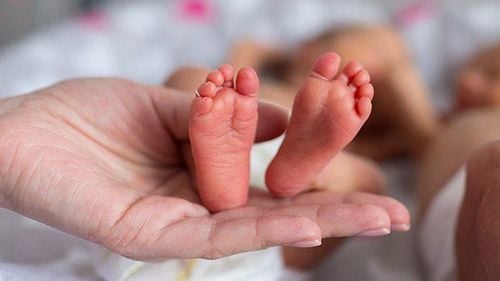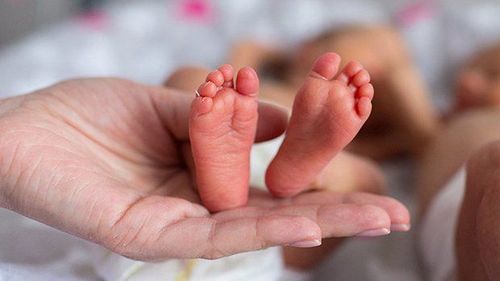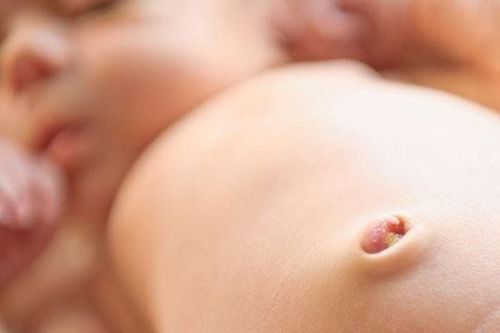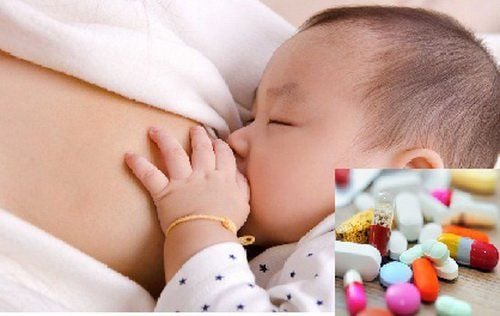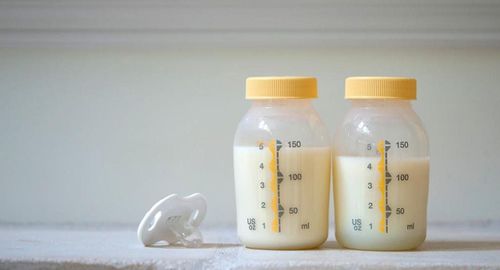This is an automatically translated article.
The article is expertly consulted by Master, Doctor Truong Thanh Tam - Pediatrician - Pediatrics - Neonatology - Vinmec Danang International General Hospital.1. Essential care for babies right after birth
The essential steps of newborn care immediately after birth are:Dry the baby with a clean towel, observe the baby while drying; Put the baby in direct skin-to-skin contact with the mother (putting the baby on the mother's belly immediately after birth); Keep baby warm to avoid heat loss; Delayed cord clamping (after umbilical cord stops beating or 1-3 minutes after delivery), 1-phase cord clamping and cutting; Support for early breastfeeding in the first hour after birth and exclusive breastfeeding.
2. Details of essential newborn care methods at birth
2.1 Skin-to-skin contact immediately after birth From the first minutes after birth, babies should have skin-to-skin contact with their mothers. This helps to increase the early interaction between mother and baby, helps the baby not to have hypothermia, the baby finds the breast sooner and breastfeeds better. At the same time, this also helps mothers reduce anxiety, reduce pain when giving birth.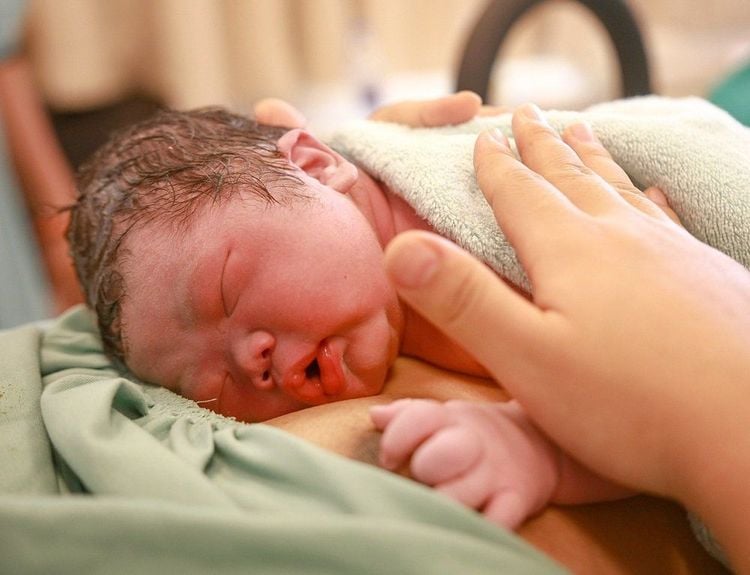
2.2 Newborn umbilical cord clamping and one stage late umbilical cord cutting Research on neonatal physiology shows that: In the first minute after birth, the amount of blood transferred from the placenta to the baby is about 80ml and can be up to 100ml within 3 minutes of giving birth. This amount of blood will provide an amount of iron equivalent to 40 - 50mg/kg of the child's weight, along with the body's iron amount of about 75mg/kg of body weight, helping full-term children to prevent iron deficiency anemia in first year of life. At the same time, clamping the umbilical cord of the newborn at the right time also helps premature babies not be anemic, reduces the rate of cerebral hemorrhage due to decreased prothrombin.
Therefore, it is recommended to clamp the umbilical cord late, preferably when the umbilical cord stops beating or 1-3 minutes after delivery for all cases of vaginal delivery in order to prevent anemia of the baby. Only perform clamping to cut the umbilical cord early (before 1 minute) if the baby is asphyxiated and needs intensive resuscitation or the mother needs an obstetric emergency.
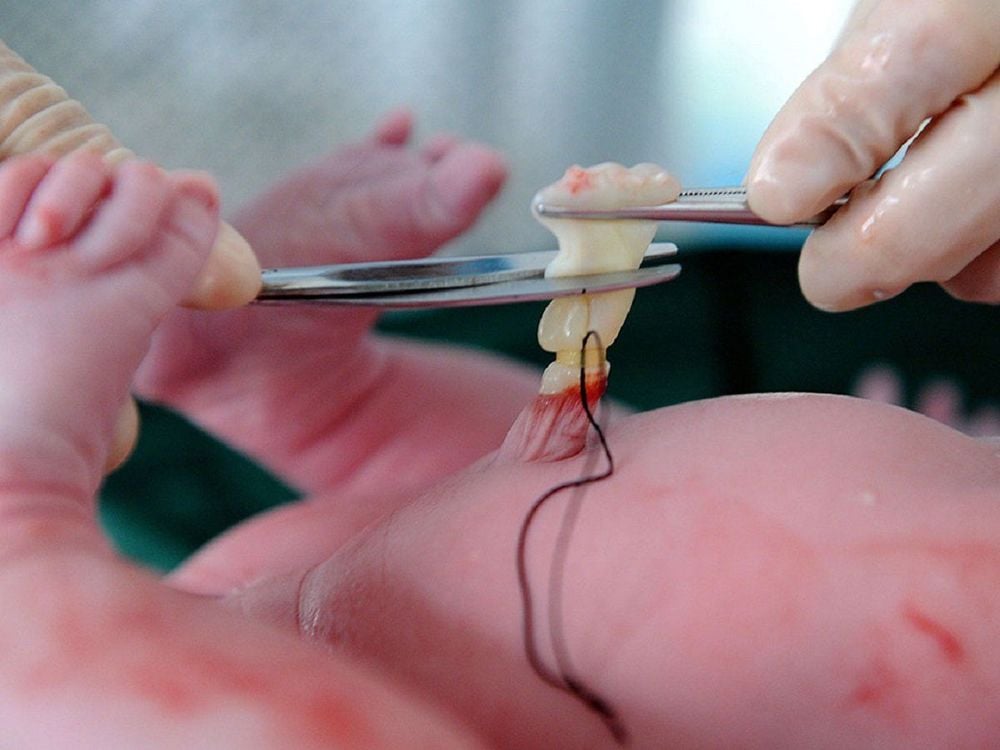
Early breastfeeding and exclusive breastfeeding help prevent the risk of infant mortality from diarrhea and acute respiratory infections in the first 3 months because this is the most appropriate and necessary source of nutrients. for infants. In addition, early breastfeeding also stimulates the mother's pituitary gland to increase oxytocin secretion, which helps the uterus contract better, and prevents postpartum hemorrhage. At the same time, the baby's sucking movement helps to stimulate the mother's mammary glands to produce milk, so early and frequent breastfeeding will help the mother quickly have milk.
Some notes when breastfeeding:
Nursing position: It is necessary to choose the right position so that both mother and baby are comfortable. The baby can be breastfed in a sitting or lying position; Should let the baby suckle all the milk from one breast, when the baby is not full, continue to feed on the other breast;
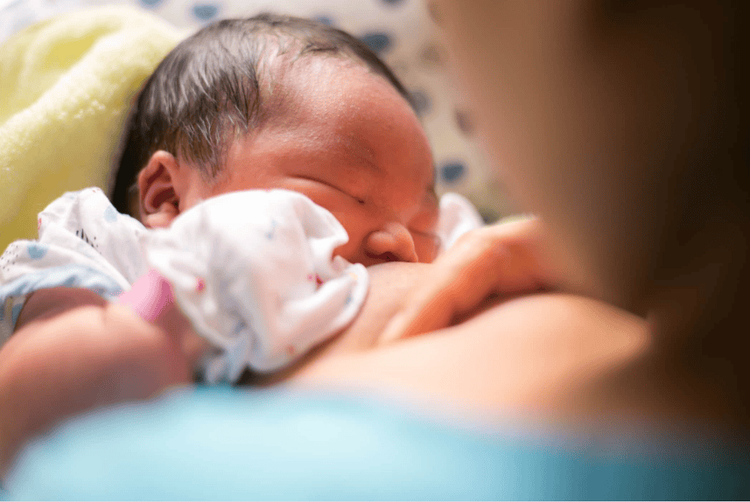
Master. Truong Thanh Tam has 15 years of experience in pediatrics and especially has a lot of experience in hematology, resuscitation and pediatric oncology. The doctor has participated in many national and international scientific conferences on pediatrics and participated in many short-term training courses and was certified as "Pediatric Core Instructor", by Hue University of Medicine and Pharmacy. grant. Currently, she is a Pediatrician at the Department of Pediatrics - Neonatology - Vinmec Danang International General Hospital.
Please dial HOTLINE for more information or register for an appointment HERE. Download MyVinmec app to make appointments faster and to manage your bookings easily.





